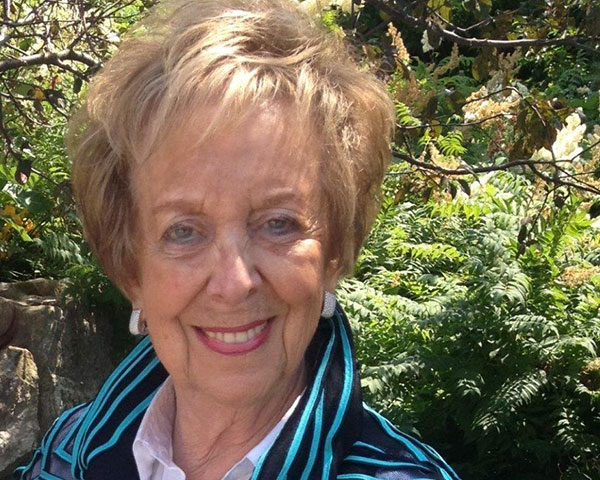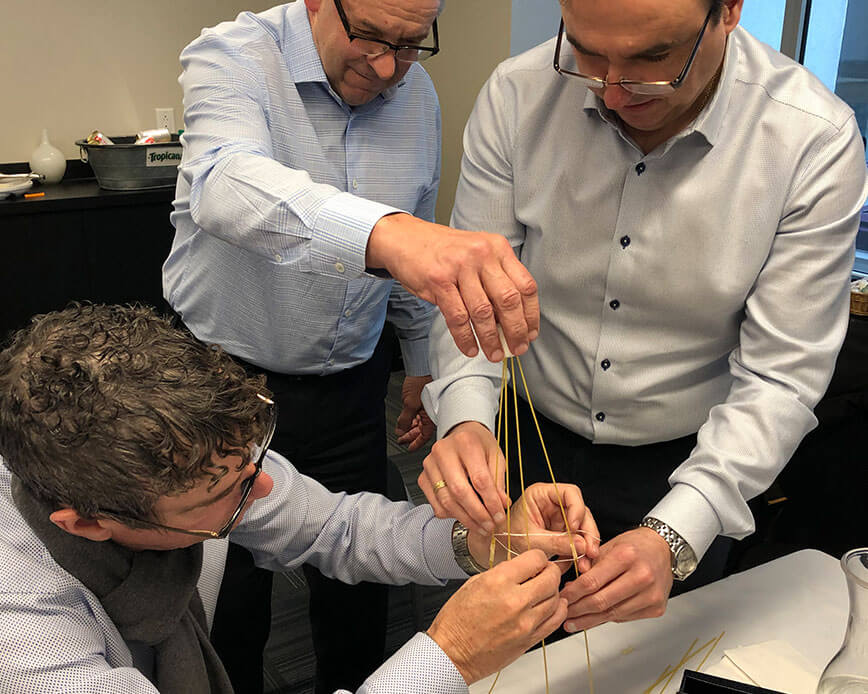For more than 40 years, ECHOtape has helped companies match their specific application needs with the right tape. Serving industries across North America including manufacturing, building and construction, paper mills and paper converters, the company focuses exclusively on pressure sensitive tape by bringing performance and value-wise solutions to our customers. And we’ve been doing it as a small, family-owned and operated business since 1973 when Stanley Edelstein sold his very first roll of tape.
Today, it’s the company’s matriarch, CEO Marilyn Edelstein, who oversees the company along with her two daughters, Cherie and Risa, ensuring Stanley’s vision and legacy thrives deep into the 21st Century.
Recently, we sat down with Marilyn for a candid conversation about life, legacy and the tape that holds it all together.
What made Stanley Edelstein decide to start a tape company? Who or what inspired the business? Stanley served four years in the U.S. Army, including time spent in Korea in the 1950s. Upon his return home, to Brooklyn, he went to work with a company who distributed pressure-sensitive tape, the correct name for the assortment of tapes we carry today. A competitor offered him a position in the same field, but it required a move to Chicago, which is where we made our first home right after we got married. Our first two children were born there!
After a few ups and downs in Chicago, and a stint in Cleveland, Stanley decided that it was time to move to my hometown and birthplace, Montreal. Everyone thought we were crazy. Even my family tried to discourage us from moving there because the French language issue was driving young people out of the province. But Stanley took that as a challenge, and never looked back.
Determined to make it work, we moved into my mother’s home — with 3 children now! — and with my full support, Stanley went into business for himself. We worked from home, and really had little expenses other than food and clothing, so the risk seemed minimal. Truth be told, once the excitement of tape gets into your blood, it never leaves.
What was the very first ECHOtape product? To the best of my knowledge, it was a Polypropylene tape, or basic packaging tape as we know it today. Already well-known in Europe, it was just coming to market in North America as a replacement for gum tape. Stanley and I both felt strongly that we needed to stay ahead of upcoming markets, so we used our savings to attend the largest trade show in the world. We were probably one of the first to introduce polypro to the marketplace.
Tell me a few interesting facts about those first 5 years. As I mentioned earlier, we felt strongly that trade shows were a necessity, but funds were limited. So Stanley would attend those shows he would have access to by bus. He would take a night bus to his destination, visit the show the day of arrival, and catch the evening bus home.
Stanley was an outstanding sales person, but a poor organizer. So each evening after the children were asleep, we would sit together, go over each call he had made that day, and discuss when he wanted to see that client again. I would create his schedule by dividing the week into 5 territories and fit that client into the appropriate slot.
Our first employee was a college student who came to the house each evening with his Irish Setter dog in a tiny Volkswagen. He would fill his car with the orders that were not in abundance and deliver them the next day.
At one point, Stanley experienced a severe back problem and was confined to bed for six weeks. Still, that didn’t stop us. He hired one or two sales people at the time, conducting the interviews from his bed. Not customary, true, but we did what we needed to do to survive!
Does the name ECHOtape mean anything? Where did it come from? Actually, the name was created by an agency at the end of the 90s. I remember that we saw it as an “echo” that would reverberate, as an echo would, over the mountains and lakes and out into the world. Hence, ECHOtape.
Who were the first customers? Who supported the business during the early years? Stanley took a personal interest in all his customers; “It’s the American way,” he would say. He never learned the French language, but his approach was novel in the interest and time he gave directly to his clients. Whenever I would ask him how he made the sale to a person who could not speak English he would tell me that it didn’t matter. The product was the language, and he always left with a genuine smile and a firm handshake that spoke volumes. He had many French clients.
Forty years is a long time to be in business. What do you remember most about the company’s growth or change during those decades? In the 70s, it was all about trade shows and meeting people and getting to know the ins and outs of each customers. These were personal relationships that Stanley built one person at a time.
By the 1980s, we did have other salespeople, but Stanley understood that personal relationships was name of the game. As a company, we showed a great deal of compassion to those in trouble, offering to help with extended payment terms or even working in the factory with our clients to help them keep producing. We had respect for each customer and they returned it.
The ‘90s was more of the same, but this was a growth decade for the company. We hired a lot of staff, and expanded our operations. During this time, we never lost our humility. We worked side-by-side with our employees, extending to them the same courtesies we gave to our customers. This philosophy resonated with them as well as our suppliers, who continued to invest in us, even when there were other options.
The last ten years have been both the most trying and the most successful. Losing Stanley … that’s not something any of us will get over. But his legacy lives on; he still receives accolades from those who remember him, both personally and professionally. I know our manufacturing and distribution has grown tenfold, but to me, it’s all about family. Our staff always knew the importance we placed on putting families first before anything else. We still share the good and bad with each other. And to this day, we’ve never lost our humility.
What was the single biggest stumbling block to growth? Finding the right people to help us grow.
How has the business evolved? From distributing any “me too” products to supplying niche and specialty markets. This is where we really shine. We continue to thrive by tackling adhesive challenges that other companies won’t address. Even if that means developing a niche product. Stanley always loved getting his hands dirty, and I like to think that we still do to this day.
What does the next 40 years look like? Steady growth, and a healthy company that never lays off staff because the computer world has replaced the human factor. Our people are our greatest asset.




